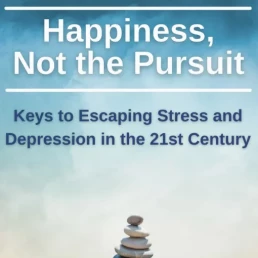I have suffered from an acute sleep disorder for many years. My sleep issues began with difficulty falling asleep, and developed into a prolonged interrupted pattern. It progressed to shallow and poor quality sleep. In this blog, I will take you through out my journey with poor sleep and how I managed to improve my sleep pattern.

The root causes of my sleep problems go far back, with mild symptoms of pregnancy insomnia in my third trimester. After giving birth, I became an extremely light sleeper who could be awakened by hearing anyone tiptoeing nearby. I became hyper-vigilant. I thought it was driven by me being a new mom. I was getting up multiple times through the night to heed to my newborn baby and then staying wide awake the rest of the night. However, that chronotype of light sleeping continued throughout the following years.
My journey with suboptimal sleep.
In 2016, when I was a victim of a chronic job, I was drained by a huge workload and long hours. I was assailed with onerous functional, technical, and humanitarian ethical commitments. My job required crossing several time zones. My social life was badly affected, and my social circle narrowed significantly. I was severely sleep deprived, barely getting 2-3 hours a night for days in a row and occasionally getting 5 hours once in a blue moon.
In the beginning, I didn’t feel the negative effects of poor sleep. I was getting up early in the morning feeling energetic, motivated, and looking forward to my day as if I had good sleep the night before. That made me wrongly think that I might be blessed; my body doesn’t need long hours of sleep for me to be able to fully function. Having the extra hours in my day seemed to help me perform at a high level, deliver more, and enjoy my time.
Consequently, I stopped obsessing about getting enough sleep and started to adjust to my insomnia, telling myself I’m lucky that I’m unfettered and not wasting my time with unnecessary sleep. When I was in bed trying to sleep every night, my brain was hyper-alert; I was not able to stop the thoughts circulating in my mind, and when I awoke in the morning, I felt like my brain had been racing while I was sleeping.
The fatigue began to catch up, causing my mental and emotional state to shake. I was gradually running out of energy. Any energy I did have to socialize or practice my hobbies was diminishing day by day. The fatigue also stirred my vitality, and my mood disorder was on the rise.
I started to look for remedies to beat my sleep disorder. I tried melatonin supplements, sought advice from sleep therapists, heard about acupuncture, listened to alpha waves tones, drank herbal tea and had amber/rose aromatic baths pre- bedtime. The last thing I tried was based on advice from a colleague of mine, who recommended that I wipe my eyes with the water of soaked jasmine petals so that I could fall asleep.
Unfortunately, none of these worked for me.
Deep dive into our brain circuits.
As a science-oriented person, I was interested in decoding the chemistry of the brain and the Cognitive Neuroscience of Sleep to understand how to use neuroscience to improve my sleep and how stress and worrying affect sleep. I learned that my daily routine, along with managing my reaction to stress, can change the activity of the neurotransmitter systems in my brain, and can therefore positively impact my insomnia.
I read the article published on InKidney titled “Sleep and Kidney Health”, in addition to the book The Upward Spiral by Alex Korb, PhD, which helped me understand the biological basis of sleep disorders and adopt practical tips to improve my sleep cycle. One caveat of the aforementioned book is that it focuses more on how to get out of the downward spiral of depression; thankfully, I was not suffering from any course of depression.
The book also illustrated how the circuits inside our brains are connected to each other (for example, the changes to my daily routine that reduced stress levels, improved mood, and provided me more energy to exercise, significantly contributed to the improvement of my sleep circuit by releasing more norepinephrine, oxytocin, endocannabinoids, dopamine, and melatonin).
The magic of sleep.
To improve sleep, we must first understand what I call “the magic of sleep.” I became familiar with the sleep architecture of our brains. That was key to understanding the stages of sleep and the governance the brain has on hormones/neurotransmitters and the quality of the sleep cycle.
The circadian rhythm, controlled by the hypothalamus, also plays a role. The hypothalamus governs a large number of our daily activities, including hunger, alertness, and body temperature. It also made me aware of the fact that circadian rhythms cause a variety of daily neuro-hormone fluctuations, including melatonin, which helps with falling asleep. This biological system can be restored and maintained by sticking to a sleep schedule and making small changes like minimizing light exposure at night.
Figure 1: The Cycle of Melatonin- (Matthew Walker, 2017)
Figure 2: Sleep Architecture- when experts chart sleep on a hypnogram, the different levels resemble a drawing of a city skyline. This pattern is known as sleep architecture. The hypnogram above shows a typical night’s sleep of a healthy young adult.
(the editors of Harvard Health Publishing in consultation with Lawrence Epstein & Program Director, 2019)
Optimizing my sleep hygiene.
Because habits are triggered by stress, I have come to understand the fundamental importance of controlling stress and anxiety. Additionally, I’ve followed a number of tips and strategies that made me feel an immediate lift in the quality and duration of my sleep. The tips to improve sleep are summarized as follows:
Day-time activities:
- Exercise, which is a great part of my daily life, gives me an enormous sense of well-being, and makes me more energetic and positive throughout the day. This translates to more productivity, happiness, and relaxation when I go to bed at night.
- Consume high prana foods (green, organic, whole and unprocessed food) that are energy giving, and necessary to function with the highest levels of productivity.
- Practice meditation for 10 minutes on a daily basis.
- Avoid naps during the daytime.
- Accomplish harder tasks during the daytime only, and keep easier or funnier tasks to the evening time.
- Caring for the people I love which is a powerful pathway to my personal growth, long lasting happiness, and stress relief.
- Self-care, maintain work-life balance, and make time for friends and people I care about.
Pre-bedtime routine:
- Go to sleep and wake up at the same time all days of the week (including weekends). It’s okay to deviate a little occasionally, but there should be a defined target for your sleep and wake up times.
- Refrain from caffeine intake (coffee or tea) 6-8 hours before bedtime.
- No eating after 8:00 PM.
- Lower all lights by a certain time at night.
- Set phone and PC on night-mode, and reduce the brightness on my devices’ screens.
- Stop the use of electronic devices at least 30 minutes before going to sleep.
- Turn off the TV in my bedroom as well as all electronics that might illuminate the room.
- Maintain self-care, a healthy diet, and proper hydration.
Bedtime setting:
- Adjust LST (no light, no sound, low temperature).
- Wear light and comfortable sleepwear; sleep on breathable fresh bedding.
- Make my bed my haven; avoid reading or working in bed to associate the bed only with sleep.
- Charge phone away from bed
Wake-up routine to stay energized:
- Start the morning with proper hydration and stretching exercises.
- After a warm shower, shower with cold water for up to 5 minutes.
- Journaling and setting the daily highlights.
The Bottom Line
One of the key pillars for building a healthy foundation for good sleep is implementing daytime habits that support a solid nighttime routine. By controlling stress and following the tips above, I have managed to improve my sleep from an average of 3 interrupted hours of sleep into continuous 6 hours of sleep. I’m waking up happier, more put together, more productive, and, most importantly, healthier. I continue to strive for 8 hours of quality sleep. I would like to end with a quote from Dr. Mathew Walker in his book Why We Sleep: “the best bridge between despair and hope is a good night’s sleep”.
Read Rania M. AlQenneh’s bio here.





